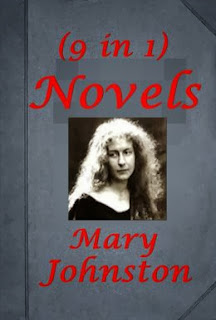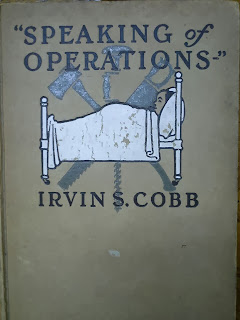INTRODUCTION--(1831.)
From what is said in the Introduction to the Monastery, it must necessarily be inferred, that the Author considered that romance as something very like a failure. It is true, the booksellers did not complain of the sale, because, unless on very felicitous occasions, or on those which are equally the reverse, literary popularity is not gained or lost by a single publication. Leisure must be allowed for the tide both to flow and ebb. But I was conscious that, in my situation, not to advance was in some Degree to recede, and being naturally unwilling to think that the principle of decay lay in myself, I was at least desirous to know of a certainty, whether the degree of discountenance which I had incurred, was now owing to an ill-managed story, or an ill-chosen subject.
I was never, I confess, one of those who are willing to suppose the brains of an author to be a kind of milk, which will not stand above a single creaming, and who are eternally harping to young authors to husband their efforts, and to be chary of their reputation, lest it grow hackneyed in the eyes of men. Perhaps I was, and have always been, the more indifferent to the degree of estimation in which I might be held as an author, because I did not put so high a value as many others upon what is termed literary reputation in the abstract, or at least upon the species of popularity which had fallen to my share; for though it were worse than affectation to deny that my vanity was satisfied at my success in the department in which chance had in some measure enlisted me, I was, nevertheless, far from thinking that the novelist or romance-writer stands high in the ranks of literature. But I spare the reader farther egotism on this subject, as I have expressed my opinion very fully in the Introductory Epistle to the Fortunes of Nigel, first edition; and, although it be composed in an imaginary character, it is as sincere and candid as if it had been written "without my gown and band."
In a word, when I considered myself as having been unsuccessful in the Monastery, I was tempted to try whether I could not restore, even at the risk of totally losing, my so-called reputation, by a new hazard--I looked round my library, and could not but observe, that, from the time of Chaucer to that of Byron, the most popular authors had been the most prolific. Even the aristarch Johnson allowed that the quality of readiness and profusion had a merit in itself, independent of the intrinsic value of the composition. Talking of Churchill, I believe, who had little merit in his prejudiced eyes, he allowed him that of fertility, with some such qualification as this, "A Crab-apple can bear but crabs after all; but there is a great difference in favour of that which bears a large quantity of fruit, however indifferent, and that which produces only a few."
Looking more attentively at the patriarchs of literature, whose earner was as long as it was brilliant, I thought I perceived that in the busy and prolonged course of exertion, there were no doubt occasional failures, but that still those who were favourites of their age triumphed over these miscarriages. By the new efforts which they made, their errors were obliterated, they became identified with the literature of their country, and after having long received law from the critics, came in some degree to impose it. And when such a writer was at length called from the scene, his death first made the public sensible what a large share he had occupied in their attention. I recollected a passage in Grimm's Correspondence, that while the unexhausted Voltaire sent forth tract after tract to the very close of a long life, the first impression made by each as it appeared, was, that it was inferior to its predecessors; an opinion adopted from the general idea that the Patriarch of Ferney must at last find the point from which he was to decline. But the opinion of the public finally ranked in succession the last of Voltaire's Essays on the same footing with those which had formerly charmed the French nation. The inference from this and similar facts seemed to me to be, that new works were often judged of by the public, not so much from their own intrinsic merit, as from extrinsic ideas which readers had previously formed with regard to them, and over which a writer might hope to triumph by patience and by exertion. There is risk in the attempt;
"If he fall in, good night, or sink or swim."
But this is a chance incident to every literary attempt, and by which men of a sanguine temper are little moved.
I may illustrate what I mean, by the feelings of most men in travelling. If we have found any stage particularly tedious, or in an especial degree interesting, particularly short, or much longer than we expected, our imaginations are so apt to exaggerate the original impression, that, on repeating the journey, we usually find that we have considerably over-rated the predominating quality, and the road appears to be duller or more pleasant, shorter or more tedious, than what we expected, and, consequently, than what is actually the case. It requires a third or fourth journey to enable us to form an accurate judgment of its beauty, its length, or its other attributes.
In the same manner, the public, judging of a new work, which it receives perhaps with little expectation, if surprised into applause, becomes very often ecstatic, gives a great deal more approbation than is due, and elevates the child of its immediate favour to a rank which, as it affects the author, it is equally difficult to keep, and painful to lose. If, on this occasion, the author trembles at the height to which he is raised, and becomes afraid of the shadow of his own renown, he may indeed retire from the lottery with the prize which he has drawn, but, in future ages, his honour will be only in proportion to his labours. If, on the contrary, he rushes again into the lists, he is sure to be judged with severity proportioned to the former favour of the public. If he be daunted by a bad reception on this second occasion, he may again become a stranger to the arena. If, on the contrary, he can keep his ground, and stand the shuttlecock's fate, of being struck up and down, he will probably, at length, hold with some certainty the level in public opinion which he may be found to deserve; and he may perhaps boast of arresting the general attention, in the same manner as the Bachelor Samson Carrasco, of fixing the weathercock La Giralda of Seville for weeks, months, or years, that is, for as long as the wind shall uniformly blow from one quarter. To this degree of popularity the author had the hardihood to aspire, while, in order to attain it, he assumed the daring resolution to keep himself in the view of the public by frequent appearances before them.
From what is said in the Introduction to the Monastery, it must necessarily be inferred, that the Author considered that romance as something very like a failure. It is true, the booksellers did not complain of the sale, because, unless on very felicitous occasions, or on those which are equally the reverse, literary popularity is not gained or lost by a single publication. Leisure must be allowed for the tide both to flow and ebb. But I was conscious that, in my situation, not to advance was in some Degree to recede, and being naturally unwilling to think that the principle of decay lay in myself, I was at least desirous to know of a certainty, whether the degree of discountenance which I had incurred, was now owing to an ill-managed story, or an ill-chosen subject.
I was never, I confess, one of those who are willing to suppose the brains of an author to be a kind of milk, which will not stand above a single creaming, and who are eternally harping to young authors to husband their efforts, and to be chary of their reputation, lest it grow hackneyed in the eyes of men. Perhaps I was, and have always been, the more indifferent to the degree of estimation in which I might be held as an author, because I did not put so high a value as many others upon what is termed literary reputation in the abstract, or at least upon the species of popularity which had fallen to my share; for though it were worse than affectation to deny that my vanity was satisfied at my success in the department in which chance had in some measure enlisted me, I was, nevertheless, far from thinking that the novelist or romance-writer stands high in the ranks of literature. But I spare the reader farther egotism on this subject, as I have expressed my opinion very fully in the Introductory Epistle to the Fortunes of Nigel, first edition; and, although it be composed in an imaginary character, it is as sincere and candid as if it had been written "without my gown and band."
In a word, when I considered myself as having been unsuccessful in the Monastery, I was tempted to try whether I could not restore, even at the risk of totally losing, my so-called reputation, by a new hazard--I looked round my library, and could not but observe, that, from the time of Chaucer to that of Byron, the most popular authors had been the most prolific. Even the aristarch Johnson allowed that the quality of readiness and profusion had a merit in itself, independent of the intrinsic value of the composition. Talking of Churchill, I believe, who had little merit in his prejudiced eyes, he allowed him that of fertility, with some such qualification as this, "A Crab-apple can bear but crabs after all; but there is a great difference in favour of that which bears a large quantity of fruit, however indifferent, and that which produces only a few."
Looking more attentively at the patriarchs of literature, whose earner was as long as it was brilliant, I thought I perceived that in the busy and prolonged course of exertion, there were no doubt occasional failures, but that still those who were favourites of their age triumphed over these miscarriages. By the new efforts which they made, their errors were obliterated, they became identified with the literature of their country, and after having long received law from the critics, came in some degree to impose it. And when such a writer was at length called from the scene, his death first made the public sensible what a large share he had occupied in their attention. I recollected a passage in Grimm's Correspondence, that while the unexhausted Voltaire sent forth tract after tract to the very close of a long life, the first impression made by each as it appeared, was, that it was inferior to its predecessors; an opinion adopted from the general idea that the Patriarch of Ferney must at last find the point from which he was to decline. But the opinion of the public finally ranked in succession the last of Voltaire's Essays on the same footing with those which had formerly charmed the French nation. The inference from this and similar facts seemed to me to be, that new works were often judged of by the public, not so much from their own intrinsic merit, as from extrinsic ideas which readers had previously formed with regard to them, and over which a writer might hope to triumph by patience and by exertion. There is risk in the attempt;
"If he fall in, good night, or sink or swim."
But this is a chance incident to every literary attempt, and by which men of a sanguine temper are little moved.
I may illustrate what I mean, by the feelings of most men in travelling. If we have found any stage particularly tedious, or in an especial degree interesting, particularly short, or much longer than we expected, our imaginations are so apt to exaggerate the original impression, that, on repeating the journey, we usually find that we have considerably over-rated the predominating quality, and the road appears to be duller or more pleasant, shorter or more tedious, than what we expected, and, consequently, than what is actually the case. It requires a third or fourth journey to enable us to form an accurate judgment of its beauty, its length, or its other attributes.
In the same manner, the public, judging of a new work, which it receives perhaps with little expectation, if surprised into applause, becomes very often ecstatic, gives a great deal more approbation than is due, and elevates the child of its immediate favour to a rank which, as it affects the author, it is equally difficult to keep, and painful to lose. If, on this occasion, the author trembles at the height to which he is raised, and becomes afraid of the shadow of his own renown, he may indeed retire from the lottery with the prize which he has drawn, but, in future ages, his honour will be only in proportion to his labours. If, on the contrary, he rushes again into the lists, he is sure to be judged with severity proportioned to the former favour of the public. If he be daunted by a bad reception on this second occasion, he may again become a stranger to the arena. If, on the contrary, he can keep his ground, and stand the shuttlecock's fate, of being struck up and down, he will probably, at length, hold with some certainty the level in public opinion which he may be found to deserve; and he may perhaps boast of arresting the general attention, in the same manner as the Bachelor Samson Carrasco, of fixing the weathercock La Giralda of Seville for weeks, months, or years, that is, for as long as the wind shall uniformly blow from one quarter. To this degree of popularity the author had the hardihood to aspire, while, in order to attain it, he assumed the daring resolution to keep himself in the view of the public by frequent appearances before them.














